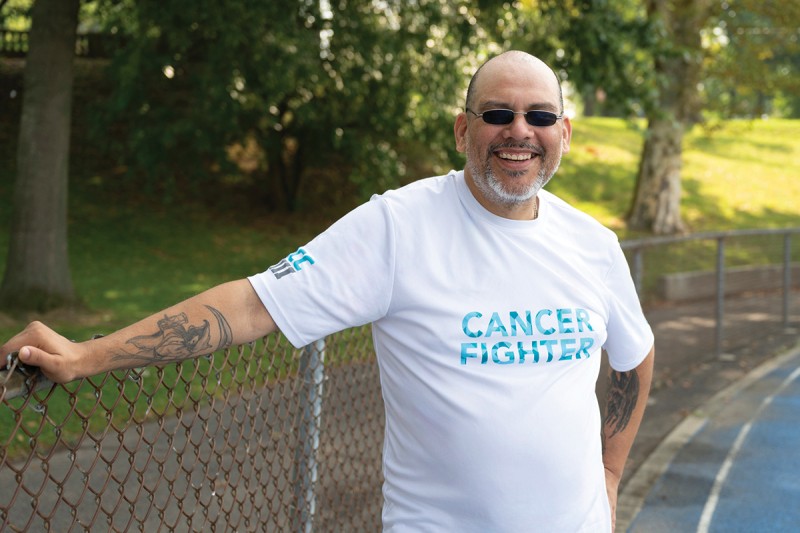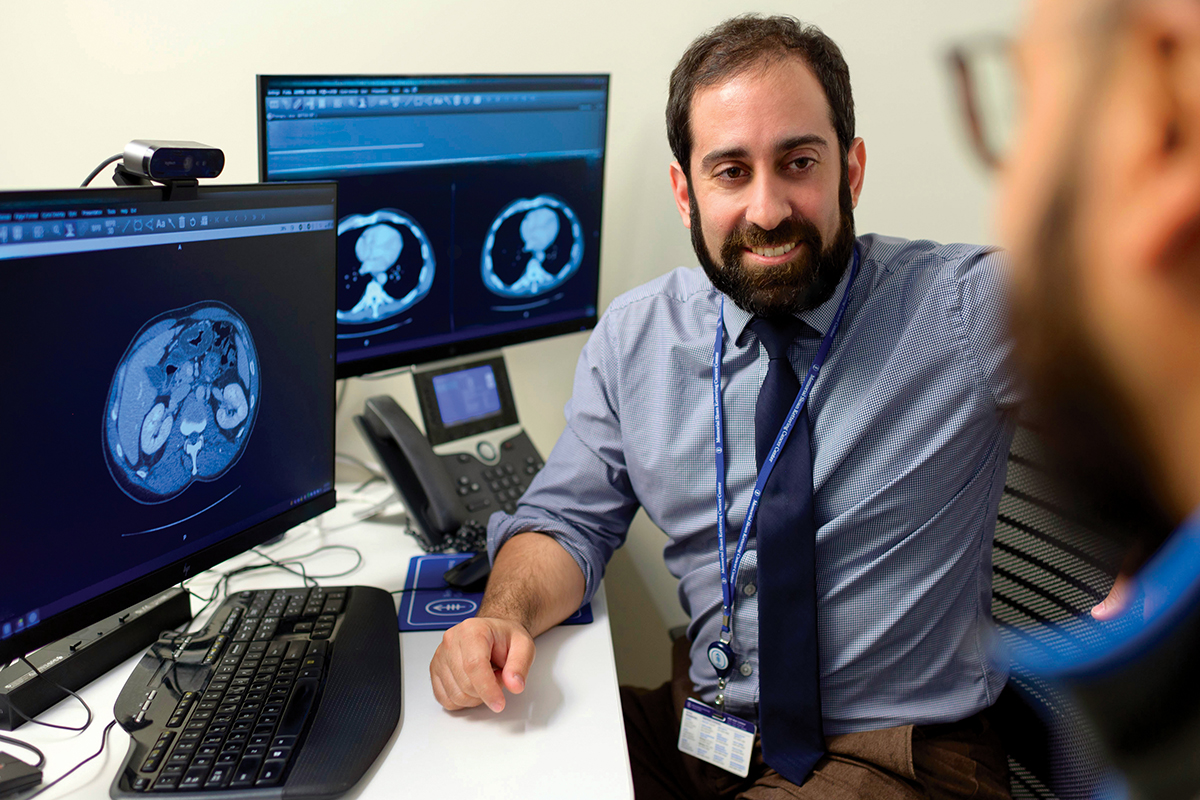
MSK helped Roberto Romero’s immune system grow an army of T cells to fight melanoma using TIL therapy, which offers new hope against solid tumors.
By the summer of 2022, Roberto Romero was running out of options to treat the melanoma he’d been coping with since 2015. He’d already had several surgeries and many rounds of drug treatment. But the cancer — which started as a dark spot under a toenail — continued to grow and was now invading his organs.
So when Roberto learned about a new immunotherapy targeting solid tumors like his, he leaped at the chance to receive the experimental treatment at Memorial Sloan Kettering Cancer Center (MSK). “I thought, ‘If I can do it and it works for me, that would be great,’ ” says Roberto, 51. “And even if it doesn’t help me, it could still help others.”
TIL Therapy as a Cancer Treatment
This approach is part of a class of immunotherapy cancer treatments called TIL therapy. TIL (pronounced “till”) stands for tumor-infiltrating lymphocytes, a specialized type of white blood cell in the immune system. The concept is simple yet revolutionary: Take these immune cells from within the tumor — where they have already been doing their best to fight the cancer — grow them into large numbers, and then put them back into the patient. Like a small group of soldiers that’s been multiplied into a bigger army, they become a stronger force to seek and destroy the cancer.

Dr. Alexander Shoushtari is an expert in TIL therapy, especially for treating melanoma.
“The idea behind TIL therapy is that these cells already know how to find the cancer,” says melanoma oncologist and cellular therapist Alexander Shoushtari, MD, a leader in TIL research. “By multiplying the number of TILs in the body, we give the immune system a better chance of fighting the disease.” The particular TIL treatment that Roberto received is called lifileucel.
On February 16, 2024, lifileucel (Amtagvi) became the first cell therapy approved by the Food and Drug Administration (FDA) to treat a solid tumor. It is approved for use in patients with metastatic melanoma whose cancer has not responded to other treatments.
TIL Therapy for Melanoma Clinical Trial Results
Early results show TIL treatment has been effective for Roberto and several other MSK melanoma patients. A phase 2 clinical trial involving many hospitals found that 36% of patients responded to the therapy. Nearly a year after treatment, Roberto’s tumors are continuing to shrink. He’s resumed his passion for distance running and his jobs working in information technology at a university and teaching English to Spanish-speaking immigrants.
Why TIL Therapy Works Well Against Solid Tumors
TIL therapy is a type of cell therapy, meaning living cells are injected into a patient to treat their disease. It’s similar to another cell therapy — chimeric antigen receptor (CAR) T cell therapy, which treats some blood cancers (sometimes called “liquid tumors”) and was pioneered at MSK. But TIL therapy may work better against solid tumors, which are much more common than blood cancers, in part because TIL cells can recognize a broad range of “markers” found on solid tumors, explains melanoma surgeon Charlotte Ariyan, MD, PhD, one of Dr. Shoushtari’s collaborators.
Using TIL When Removing All Tumors With Surgery Isn’t Possible
One benefit of the TIL approach is that it can be effective even when surgically removing all the tumors is not an option. “We operate only on the tumor that’s easiest to access,” Dr. Ariyan explains. “That’s because patients have to recover from surgery and be ready to receive the TIL therapy relatively quickly.”
Roberto’s TIL Melanoma Treatment Story
For Roberto, the process began just before Christmas in 2022. MSK surgeon Edmund Bartlett, MD, performed surgery to remove a tumor from the lining of Roberto’s abdomen near his colon. After he recovered, he was given high doses of chemotherapy to prepare his body for the TILs, which were sent to be grown in the lab of the company that makes lifileucel. Ten days later, his TILs were infused through a port in his chest to circulate throughout his system and hunt down additional tumors. He was then given an immune-stimulating drug called interleukin-2 to further boost his immune system.
The first few weeks were difficult. He had high fevers and could not have visitors due to his weakened immune system. Except for the nurses who cared for him around the clock, Roberto spent the holidays in isolation in his room decorated with a small tree and twinkling lights. “I wanted it to feel festive despite what I was going through,” he says.
As he recovered, he spent hours walking the halls and riding a stationary bicycle in his room. By the end of January, he was home. By February, he was already back at work. To his astonishment and great relief, scans showed his tumors were shrinking. “It’s pretty amazing, because there were moments during my treatment when I didn’t think I was going to make it out of the hospital,” he says.
In March 2023, Roberto started jogging again. Vowing to run the New York City Marathon, he joined Fred’s Team to raise money for research at MSK.
“Dr. Shoushtari tells me I make recovery look easy, but I know it’s not easy for most patients,” Roberto says. “I’m fortunate that I was in good shape before treatment. And I’m grateful for the care that I received from everyone at MSK.”
TIL Therapy May Work for Other Cancers
Like other immunotherapies pioneered at MSK, Dr. Shoushtari believes TIL therapy may be effective against many types of cancer. “These melanoma studies are a powerful proof of concept for this class of treatment,” he says. TIL therapy studies are already underway at MSK for lung cancer, as well as for other types of melanoma, including melanoma that has spread to the brain.
Dr. Ariyan holds the Carol Bassok Lowenstein Endowed Chair.